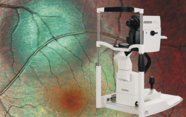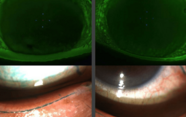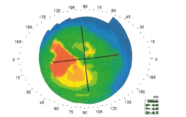
New Virus, Old Story
Why are patients with AMD at greater risk of developing severe COVID-19?
A recent paper in Nature has found a connection between the severity of COVID-19 – and the risk of dying from the disease – and mutations in genes responsible for complement and coagulation (1).
Complement, one of the oldest parts of the immune system, enhances the way antibodies deal with pathogens and damaged cells, removing them from the body and stimulating inflammation. Patients with AMD, which is caused by overactive complement, may develop more serious complications of COVID-19, resulting in more hospitalizations and deaths in this patient group.
So, how does SARS-CoV-2 affect complement and coagulation? Sagi Shapira, Assistant Professor of Systems Biology at Columbia University Vagelos College of Physicians and Surgeons and one of the lead investigators of the study, explained (1), “Viruses have proteins that can mimic certain host proteins to trick the host’s cells into aiding the virus with completing its life cycle. The new coronavirus – by mimicking complement or coagulation proteins – might drive both systems into a hyperactive state.”
As part of the study, researchers looked at patients with AMD who were admitted to Columbia University Irving Medical Center with suspected COVID-19. They determined that over 25 percent of AMD patients died, compared with an average mortality rate for admitted patients of 8.5 percent – a difference not explained by the patients’ age or sex. Patients with other conditions where complement also plays an active role – such as obesity or diabetes – also have a higher risk of needing intubation or dying as a result of SARS-CoV-2 infection.
Analysis of data from the UK Biobank, which contains the genetic information of half a million people, confirmed that variants of many genes associated with severe forms of COVID-19 also influence complement and coagulation activity. This might not be good news for AMD patients; however, it may also mean that medications designed to inhibit the complement system could be used to treat patients with severe COVID-19.


Having edited several technical publications over the last decade, I crossed paths with quite a few of Texere's current team members, and I only ever heard them sing the company's praises. When an opportunity arose to join Texere, I jumped at the chance! With a background in literature, I love the company's ethos of producing genuinely engaging content, and the fact that it is so well received by our readers makes it even more rewarding.













